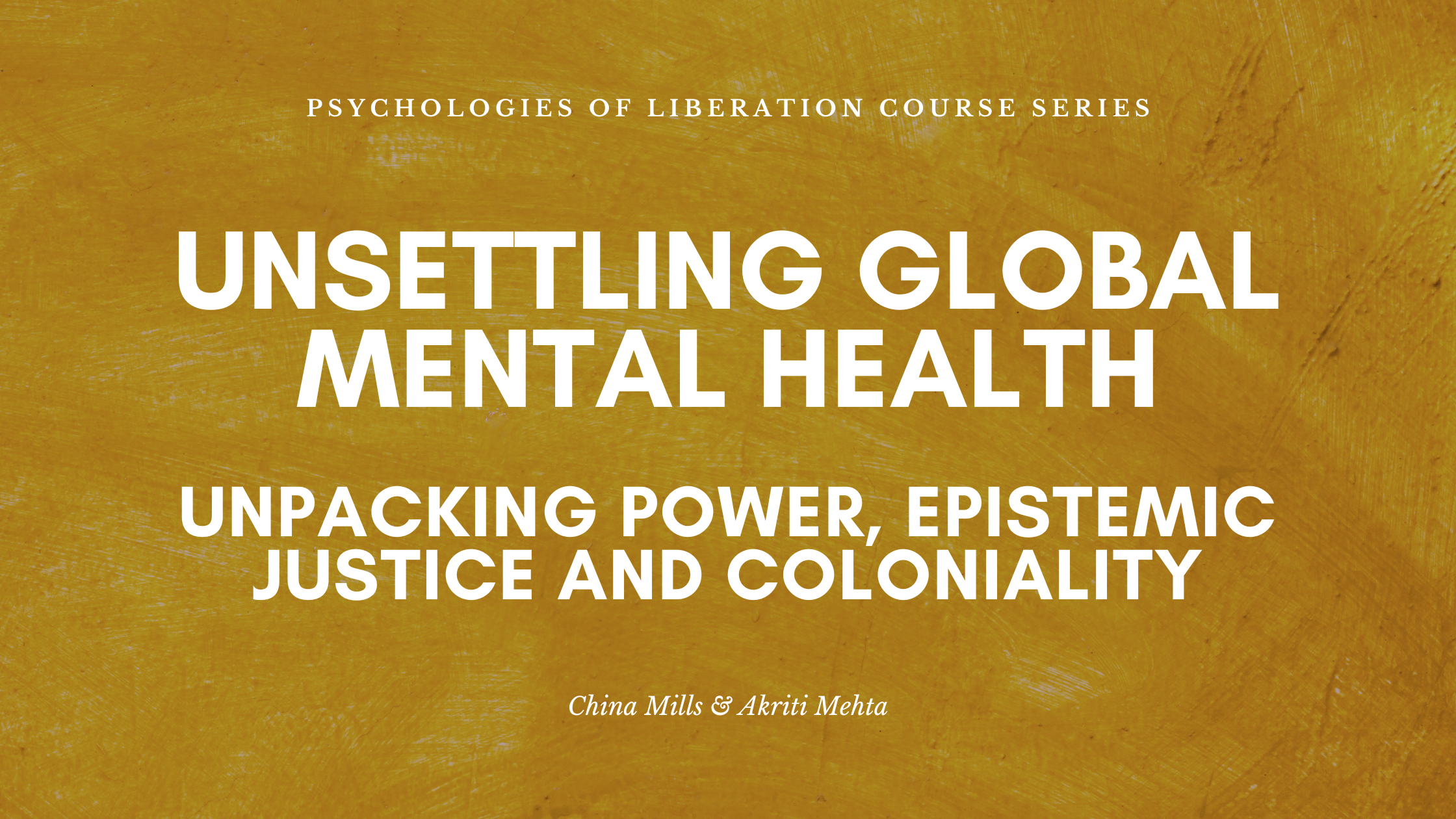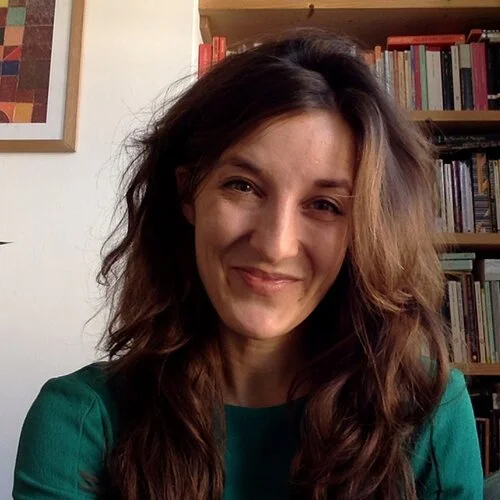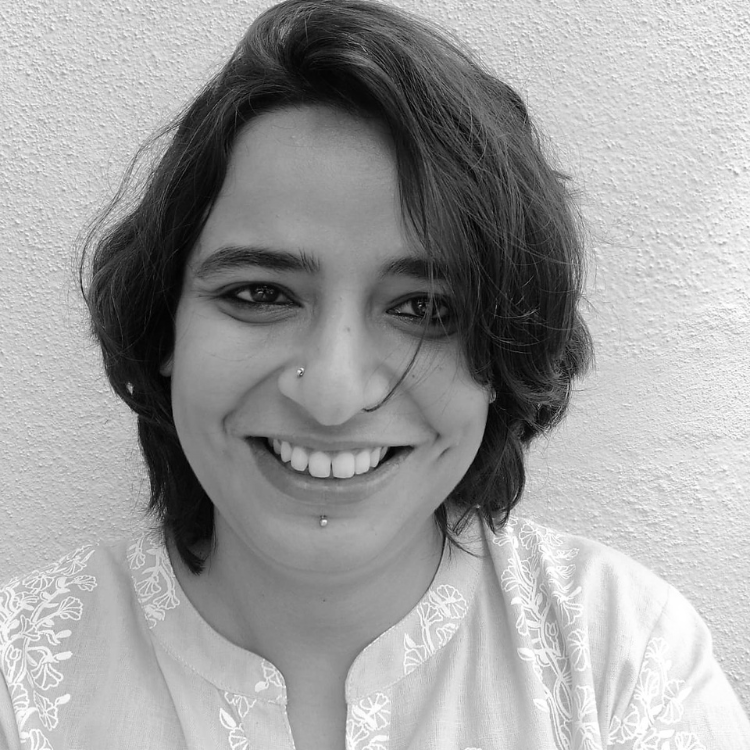Unsettling Global Mental Health
Unpacking Power, Epistemic Justice and Coloniality
Description
“Global Mental Health” is a growing field of study and practice that seeks to improve access to mental health services for people worldwide. As the movement gains influence, its critics have argued that Global Mental Health is born of a Eurocentric understanding of well-being largely based on biopsychiatry. As such, the globalization of these approaches threatens to recreate colonial dynamics by undermining local healing systems, deemphasizing the value of community support, and erasing the experiences of those most impacted.
This class unpacks and reflects on some of the key assumptions that underpin Global Mental Health and some questions that arise in response. What happens when issues such as distress and suicide get framed as global mental health challenges? Who defines what is health versus illness? Who determines what counts as evidence and what evidence counts? Can, or should, mental health be global? In contrast to Global Mental Health, we seek to recognize, appreciate and tap into the deep wells of knowledge that have been developed by users/survivors/persons living with psychosocial disabilities in the Global South.
What you’ll learn:
Some of the key assumptions underlying Global Mental Health frameworks – and why it is important to contest them
How to ground understandings of, and future action in, Global Mental Health within the organizing and knowledge production of users/survivors/persons with psychosocial disabilities – especially in the Global South
The significance of cross-border networks and social movements of users/survivors/persons with psychosocial disabilities
How power, colonialism, and coloniality shape Global Mental Health discourse and practice, including the impacts of epistemic injustice and epistemicide
The promises and limitations of a rights-based approach to Global Mental Health, including the relevance of the UN Convention on the Rights of Persons with Disabilities (CRPD) and mandates of the UN Special Rapporteur on the right to health
Faculty
CHINA MILLS
China Mills’ research traces different facets of the global mental health assemblage. She explores the ways diagnoses travel and circulate around the world, and what happens when issues such as distress, suicide, or terrorism get framed as global mental health issues. China is the author of the book ‘Decolonizing Global Mental Health: The psychiatrization of the Majority World’ (Routledge).
AKRITI MEHTA
Akriti Mehta is a mad disabled researcher and (aspiring) activist. She is currently doing her PhD exploring psychosocial disability activism in India. She is also involved in several projects related to disability studies, madness, and justice in the global South. Fundamental to her research and activist interests are questions of injustice, of power imbalances, of oppression and exclusion, but also equally of resistance and solidarities, of inclusive and intersectional movement-building, and of creating communities and practices of care.
Audience
This course is for:
Mental health and physical health professionals, including: clinicians, psychologists, psychiatrists, social workers, peer specialists, recovery support specialists, housing specialists, nurse practitioners, wellness support workers, coaches, holistic practitioners
Students
Activists
Family members and advocates
Anyone who works or plans to work with people experiencing mental health-related challenges
Pricing
We provide the option of enrolling for at the General ($20) or Supporter ($40) rate to ensure the sustainability of IDHA’s work and enable us to create more accessible, cutting-edge training content.
What you get: |
General $20 |
Supporter $40 |
| 100 minutes of video content | ✓ | ✓ |
| Exclusive readings and resources | ✓ | ✓ |
| A reference and resource list to aid ongoing learning and exploration on the course topics | ✓ | ✓ |
| Access to IDHA's virtual learning community on Mighty Networks | ✓ | ✓ |
Enroll
This self-paced course is hosted on Mighty Networks, home to IDHA's School for Transformative Mental Health. This virtual community space supports sustained learning, engagement with other students, access to supplemental resources, and opportunities to interact with your faculty.
Click ONE OF THE buttons below to ENROLL IN THE COURSE AND Join us on Mighty Networks!
If you already have an account, simply log in to proceed to the course.
If you’re new to IDHA’s Mighty Network, you will be prompted to create an account and then receive access to course content.
FAQ
When does the course start and finish?
This is a completely self-paced online course - you decide when you start and when you finish.
How long do I have access to the course?
After enrolling, you have unlimited access to this course for as long as you like - across any and all devices you own.
What if I am unhappy with the course, content, or platform?
We love hearing your feedback on what we can do to improve our efforts to bring transformative mental health to the public! Shoot us an email at contact@idha-nyc.org and let us know your thoughts. If you disagree with any of the perspectives shown in this course - that's great! We encourage differing perspectives, so feel free to leave a comment in the course - so long as your comments remain respectful and you speak from your own point of view.
I am a person struggling with mental health issues/a family member of someone who is struggling. Can I take the course?
Absolutely! Just note that this course is geared towards professionals in the field, and will speak mostly to those working in a formal support role. However, we welcome anyone who wants to join!
Are refunds available?
At this time, all sales are final, we cannot offer refunds after purchase.
Are Continuing Education (CE) credits available?
Unfortunately this course is not available for CE credits at this time. We encourage you to check out the rest of our self-paced course library to view which courses are currently available for CEs.



